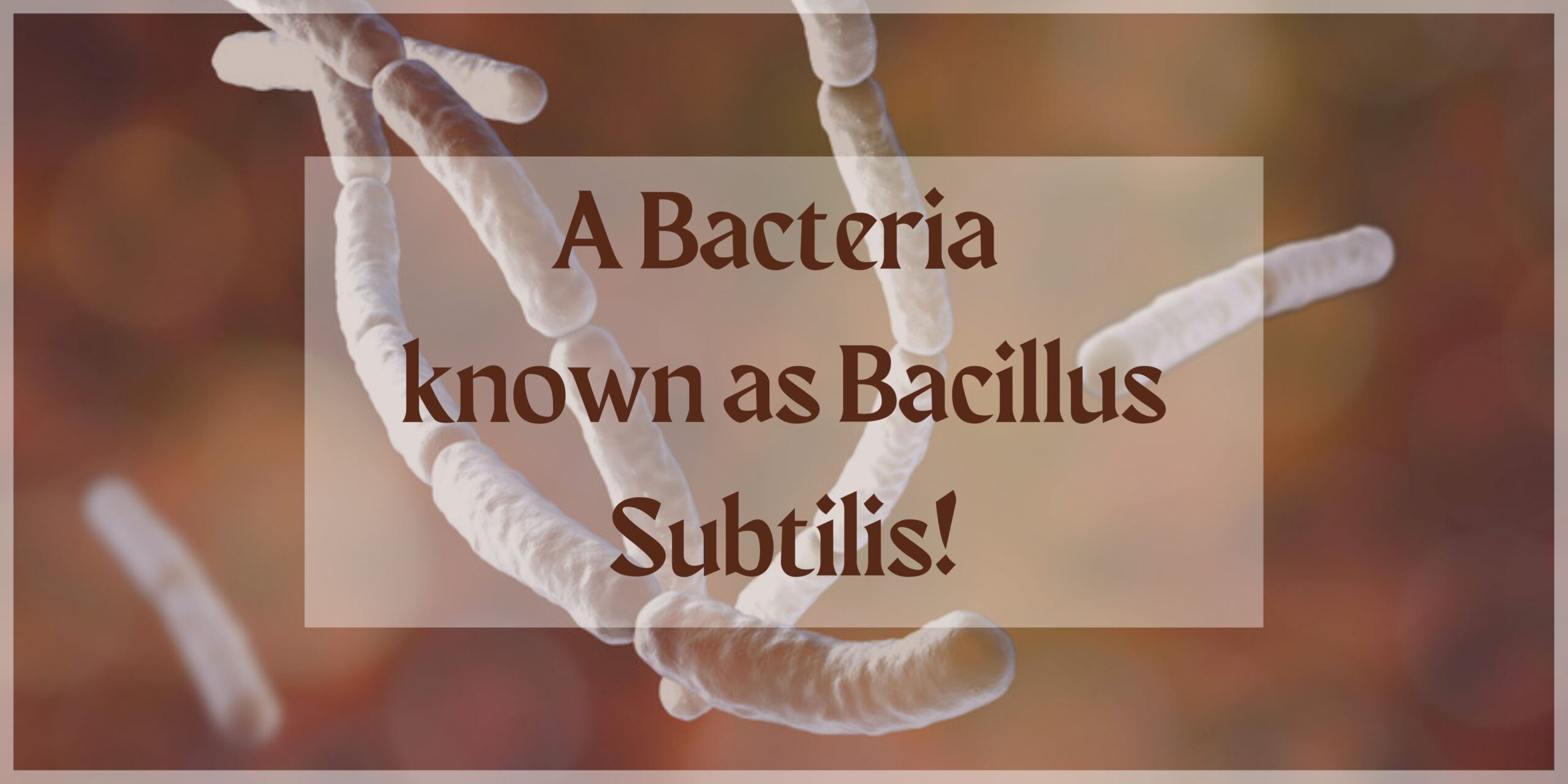
A bacteria known as Bacillus Subtilis!
The benefits of bacillus subtilis are addressed carefully in this article. Bacillus subtilis is a biological tool that can help crops grow by causing biomolecular changes in unfavourable environments. Crop productivity can be influenced by both environmental and genetic variables.
Microbes that are beneficial to plants are increasingly being used to boost agricultural yields and give an alternative to artificial fertilisers and pesticides. Most bacteria that are advantageous to plant growth are Pseudomonas and Bacillus species. Bacillus differs from Pseudomonas because it can create spores, whereas Pseudomonas cannot.
Bacillus subtilis contributes to the proper development of plants in various ways. It can produce heat and stress-resistant spores. It can also be put into a number of dosage forms. We can combine it with chemical pesticides without inactivating them. The mass of bacillus subtilis production technology is simple, and the price is inexpensive. The application and storage are both simple.
Advantages of Bacillus subtilis
The potential outcomes of Bacillus subtilis can be divided into two categories: spatial locus competition and nutritional competition. Its ability to rapidly and massively grow and colonise in the rhizosphere, body surface, and soil results in antibacterial and disease-preventing actions. It also effectively rejects, inhibits, and interferes with plant pathogenic microbe colonisation and infection.
Inducing plant resistance to diseases is one of the benefits of bacillus subtilis. Bacillus subtilis not only directly reduces plant pathogenic bacteria but also increases plant disease resistance by activating the plant’s disease resistance potential. Bacillus subtilis can thereby protect plants against illness in two ways. In order to create disease resistance, B. subtilis, a biocontrol agent against rice sheath blight, can modulate the activity of enzymes relevant to disease resistance in rice leaf sheath cells. This permits B. subtilis to prevent the infection from spreading to rice.
Bacillus subtilis secretes several compounds that stimulate plant development and protect against pathogen invasion. Certain explorations have been carried out to look into the physiological alterations in crops in reply to Bacillus subtilis, which protects crops from severe environmental circumstances.
More advantages of Bacillus subtilis
Bacillus subtilis produce siderophores and exopolysaccharides, which limit the passage of harmful ion. It modifies the ionic balance as well as water transport in plant tissues. Also, it controls the pathogenic bacteria population under water scarcity.
Stimulating the crop’s immune structure and growth is included in the benefits of bacillus subtilis. Bacillus subtilis products can secrete active compounds, activate plant defence mechanisms, boost crop immunity and disease resistance. They reduce or eliminate plant damage caused by harmful bacteria. Additionally, it can support the growth and improvement of various plant seeds, roots, and seedlings, as well as improve plant disease resistance, which can indirectly lower disease incidence. Bacillus subtilis, for example, promotes the growth of agricultural roots, increases photosynthesis, and increases auxin production.
Simultaneously, it converts compounds that are difficult for the soil to absorb into substances that are easily absorbed by crops and protects soil. It stimulates crop nutrient absorption and utilisation. And it improves the rate at which fertilisers are used.
Uses of Bacillus subtilis
Bacillus is also the producer of gibberellic acid, indole-3-acetic acid, and 1-aminocyclopropane-1-carboxylate deaminase. These three chemicals intensify crop stress tolerance and influence intracellular phytohormone metabolism.
Producing antibacterial substances is one of the benefits of bacillus subtilis. Bacillus subtilis is capable of creating a variety of antibacterial and bacteriostatic chemicals during its development. These compounds include organic acids, subtilin, antimicrobial proteins, and others. These substances can impede the growth and reproduction of harmful bacteria. And in certain situations, they can even destroy the structure of the bacterium, effectively eliminating the pathogens. As a result, Bacillus subtilis has a beneficial effect on treating and preventing illnesses such as root rot, double rot, and grey mould.
Cell-wall-degrading compounds from Bacillus spp., such as protease, chitosanase, cellulase, lipopeptides, glucanase, and hydrogen cyanide, are used to limit the populations of pathogenic bacteria, fungi, viruses, nematodes, and pests in crops and farmlands.
Unfavourable environmental stimuli affect normal plant metabolism, reducing crop development and yield. Bacillus-induced physiological changes, such as modulation of water transport, activation of the antioxidant, nutrient uptake, and defence systems, lessen the negative impacts of abiotic and biotic stress factors on crops. By changing stress-responsive genes, phytohormones, proteins, and associated metabolites, the Bacillus association boosts plant immunity to stressors.